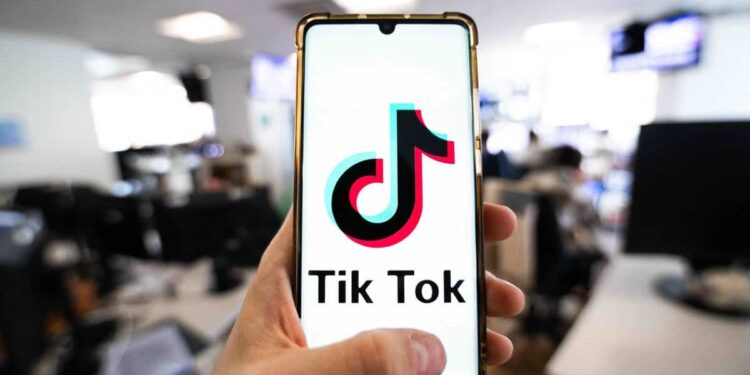If TikTok teams had already identified harmful effects of the platform on young users, they nevertheless limited prevention measures for fear of seeing attendance drop, according to internal documents revealed Friday by American public radio in Kentucky.
• Also read: Mental health: TikTok taken to court by 14 US states
The documents were mentioned in the subpoena by the Kentucky prosecutor, along with twelve other US states and the prosecutor in the capital Washington, accusing TikTok of harming the mental health of its young users.
These extracts from internal company communications have been redacted. However, the version published as part of the Kentucky action reveals part of the exchanges.
Kentucky Public Radio reconstructed these excerpts, before a state judge ordered the documents removed from the public record.
These extracts show that TikTok was aware of the attraction capacity of its platform and its recommendation algorithm, which offers videos to the channel.
“We must be aware” of the consequences that the algorithm can have on “sleep, nutrition, moving around the room or looking someone in the eyes,” wrote a company executive.
In another internal document, TikTok assessed that from 260 videos viewed on the network, a user “had probably become dependent on the platform”.
“Compulsive use (of TikTok) is linked to a series of negative effects on mental health, such as the loss of analytical capacity”, and also penalizes “the formation of memory, the ability to contextualize , to conversation, to empathy,” concluded researchers within the company itself, according to the documents.
Frequent use of the social network also causes “increased anxiety,” according to the same source.
TikTok has added several features to limit the use of the platform by young Internet users, including parental controls and an interruption after an hour of viewing.
But, still according to the documents, the subsidiary of the Chinese ByteDance did not seek to improve this tool, even if it was aware of its limited effectiveness.
“Our goal is not to reduce the time spent” on the platform, wrote a project manager at TikTok.
“It is highly irresponsible (on the part of this public radio) to have published information protected by the courts,” commented TikTok in a reaction sent to AFP.
For the platform, these are “misleading quotes” and documents “out of context”.
The company recalls having put in place certain measures aimed at protecting minors in its social network.



